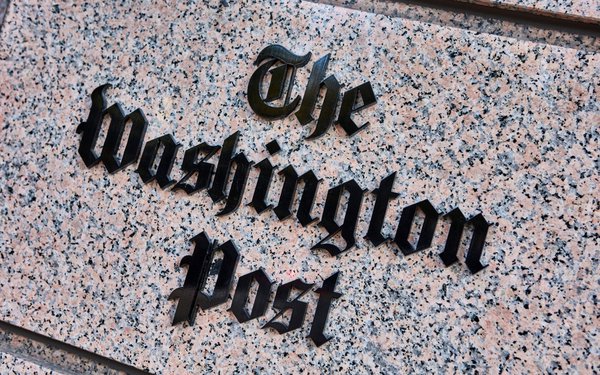
The furor over The
Washington Post’s decision to not endorse Kamala Harris – or any other Presidential candidate – is not abating, and may be getting worse.
Roughly 200,000 people – 8% of the total circulation – have cancelled their digital subscriptions, David Folkenflik reports on NPR.
Some commentators
attribute the Post's failure to publish a penned endorsement of Kamala Harris to fear of Donald Trump.
Folkenflik reports that officials from owner Jeff Bezos’ Blue Origin
aerospace company met with Trump a few hours after the non-endorsement became public.
On Monday, in his first public comment on the flap, Bezos published a column under his own byline,
stating that the decision is grounded in a need to avoid showing bias. Bezos argues that Americans believe the media are biased.
advertisement
advertisement
"Presidential endorsements do nothing to tip the scales
of an election," he writes. "No undecided voters in Pennsylvania are going to say, ‘I’m going with Newspaper A’s endorsement.’ None. What presidential endorsements actually do
is create a perception of bias. A perception of non-independence. Ending them is a principled decision, and it’s the right one."
Bezos adds, "I would also like to be clear that no quid
pro quo of any kind is at work here. Neither campaign nor candidate was consulted or informed at any level or in any way about this decision. It was made entirely internally."
But Bezos
concedes that "Dave Limp, the chief executive of one of my companies, Blue Origin, met with former president Donald Trump on the day of our announcement. I sighed when I found out, because I
knew it would provide ammunition to those who would like to frame this as anything other than a principled decision. But the fact is, I didn’t know about the meeting beforehand. Even Limp
didn’t know about it in advance; the meeting was scheduled quickly that morning. There is no connection between it and our decision on presidential endorsements, and any suggestion otherwise is
false.”
Bezos continues, “You can see my wealth and business interests as a bulwark against intimidation, or you can see them as a web of conflicting interests. Only my own
principles can tip the balance from one to the other. I assure you that my views here are, in fact, principled, and I believe my track record as owner of The Post since 2013 backs this
up.”
This has not quieted criticism, although some of it is more measured than you might expect.
When Martin Baron was the executive editor of
the Post, he says owner Bezos always stood up for the paper's editorial independence in the face of pressure from former U.S. president Donald Trump.
But now that
the Post has decided not to endorse a presidential candidate, reportedly at its billionaire owner's behest, Baron no longer believes that to be the case.
"Jeff Bezos stood
behind us all the way," Baron told Nil Koksal on the latter's As It Happens podcast. "He endured a lot of pressure from Donald Trump, and Trump
threatened his business, Amazon, and all of that. And he didn't bend at all."
But Baron adds, "I see this development as yielding to Trump's pressure."
Despite all this, one Post columnist has endorsed Kamala Harris.
Alexandra Petri writes that “if I were the paper, I would be a little embarrassed that it has fallen to me,
the humor columnist, to make our presidential endorsement. I will spare you the suspense: I am endorsing Kamala Harris for president, because I like elections and want to keep having
them.
Meanwhile, the other major paper to refrain from an endorsement, Los Angeles Times, has also suffered staff departures. Journalistic veterans Robert Greene and Karin Klein
resigned last Thursday, following editorial page Mariel Garza out the door, AP reports.